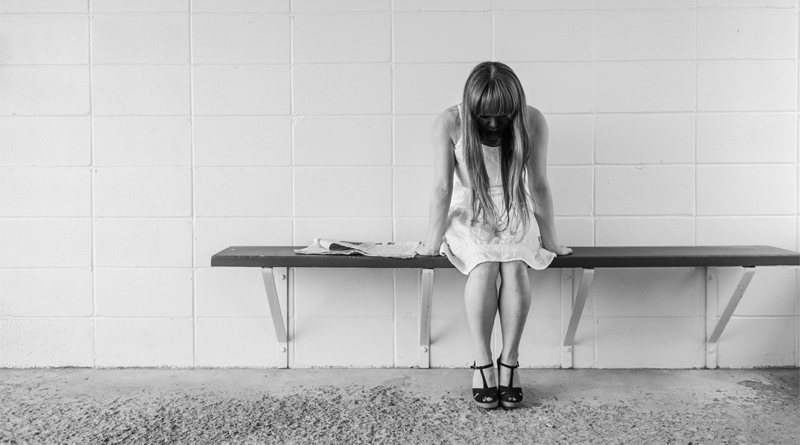MENTAL HEALTH – A PERSONAL STORY
A dear friend of mine, Indea, has suffered from multiple mental health problems long before I knew her. Depression, anxiety, bulimia and self-harm are four of the difficulties she’s had to deal with so early in life.
And yet, despite this, outwardly she appeared so happy and joyful – while inwardly she was battling through this horrid journey alone. Her constant cheerful façade fooled everyone, stopping her loved ones knowing about how she felt, and preventing them from aiding her. This ultimately led to the one thing that every parent, friend and family member fears; she attempted to commit suicide.
Before school one morning, she swallowed over 70 pills, a mixture of anti-depressants and pain killers. Having realised what she’d done, she immediately called her dad. Sobbing down the phone he urgently shouted at her to call an ambulance. Indea was rushed to hospital where she spent three days recovering.
Her dad. of course, suffered and still suffers with parental insecurities; he completely blames himself and for what he thinks his lack of love, care and attention did. Indea is guilt-ridden due to this, and finds it incredibly hard to talk to her father about her mental health problems. He sees it as entirely his fault and criticises himself.
When I saw Indea a few days after this traumatic and heart-breaking incident, she told me that she hadn’t planned to do what she did, nor did she want to do it. She claimed that she felt overpowered and not in control in that five minutes in which she put her precious life at risk. This is a perfect example of what mental health can do to someone’s mind. Her illness warped what she did that morning. It changed what she believed she wanted to do, and almost caused the world to lose a special human being.
This mental health battle interests me as it shows how you simply don’t know what struggles people are internally facing. Indea always gets asked the question, “why didn’t you reach out and get help?” It’s not easy to get help, as many people simply don’t understand how to deal with a person with a mental illness. They don’t have any experience or better yet understanding, so can sometimes come across as patronizing. It’s extremely difficult for people to see someone, such as Indea with a smile on her face, but then hear that she’s not happy and wants to kill herself. It’s an insanely complex situation, and those who have not felt it or been in it just can’t, don’t or won’t empathise.
Sufferers of mental illnesses need more help than those with a broken leg or a fractured arm. They go through everyday life dealing with not only the challenges that everyone must deal with, but also the extra layer of anxiety and depression. Try and imagine your everyday life with a constant and never-ending burden on your shoulders relentlessly weighing you down. Not only this, but also the inability to socialise, meet new people, travel to different places, or even just get out of bed each morning.
Even more worryingly, due to the stigma society has always had when it comes to illnesses of the mind, many sufferers feel that they can’t seek help, they feel ashamed, embarrassed and humiliated. Given the gravity of the situation, it’s frightening that some people truly believe that not seeking help for fear of shame is better than recovering.
It’s okay not be okay, it’s alright that many people struggle with their mind and it’s completely understandable that many of us find the complexities of life a bit overwhelming.
All humans like closure and being able to solve something. So, perhaps the stigma that surrounds mental health first developed when doctors and scientists were unable to find a cure or a reason for mental illness several centuries ago. Most human beings are afraid of what they know nothing about. And it was only 60 years ago, people with mental health issues and learning difficulties were locked away in institutions, forgotten, neglected and ignored. This was because of fear, which is founded in ignorance and misunderstanding.
Accurate diagnosis, effective treatment and medication for mental illnesses is relatively new. These days advances in knowledge and a reduction in prejudice is making life a lot easier for those afflicted, but the acceptance level is still not where it should be.
Believe it or not, mental illness’s effect around one in four people. Yet, those who suffer from this difficult disorder find it hard to reach out; they rarely gain the level of understanding they need from those around them or in their own mind. Let’s discard the ideology of “mental health” and, instead further develop a society that allows illnesses, commends people for living with them and finally shows understanding of just how hard life can be.
 ABOUT THE AUTHOR
ABOUT THE AUTHOR
Mia Hesdon is a confident 16 year old girl who has always had a passion for writing. In 2016 Mia came second in the Jack Petchey Speak Out Challenge Surrey Region; her speech was on one of her main passions: Feminism. Mia hopes one day to become a serious journalist, and perhaps even a presenter on television. Her articles on PassionforthePlanet.com are her first step to achieving this dream.

